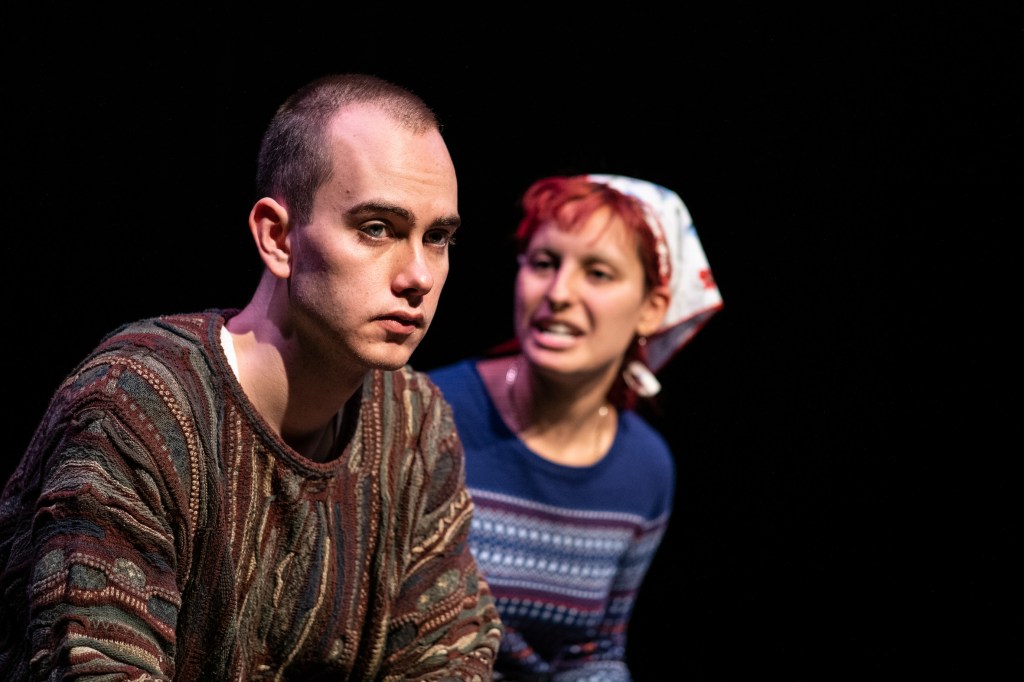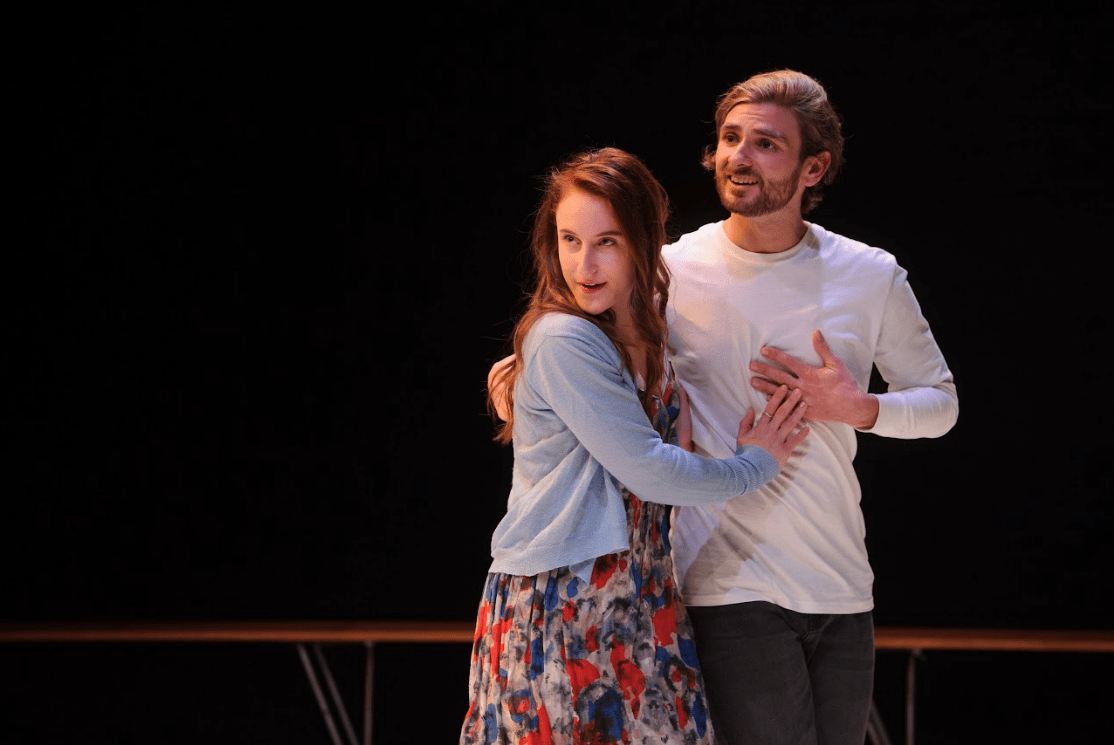Learning creative skills takes time, according to two-time Green Room Award-winning actor, writer and theatre-maker Cazz Bainbridge.
‘There are no hacks. You can’t just go from zero to 100,’ says Bainbridge, who teaches screen acting at Melbourne’s National Theatre Drama School in addition to maintaining a creative practice.
‘Honing creative skills takes time and you have to put the work in. So when students do actually put the work in, when they challenge themselves, when they step outside their comfort zone, that’s when you can see the tools and principles we teach unlocking something in them. That’s when you really get to see someone flourish.’
Bainbridge is one of three National Theatre Drama School staff responsible for teaching the 16-week Foundation in Acting course, an accessible and compact course destined to do exactly what it says on the tin – provide a solid foundation in stage and screen acting, as well as script analysis, comedy and clowning, for anyone considering a performance career.
‘We see a lot of people who are leaving school or university that have been bitten by the acting bug, and are wondering if maybe this will lead them to a big drama school – like our full-time program or at another institution – or perhaps pursuing an agent and starting their professional career,’ Bainbridge explains.
‘It’s three nights a week over two eight-week terms, but it’s still accessible for people who can’t commit to doing our three-year, 40-hour week course.’
The course has also proven popular with actors who may have taken a break from the industry in their 30s or 40s and who, in Bainbridge’s words, ‘want to brush up their skills while still having an outside life’.

Classes are held on Monday, Wednesday and Thursday nights, with each night dedicated to one of three subjects: Voice and Stage Acting, Screen Acting and Theatre Making.
Class sizes are small, ensuring that all students can benefit equally from the attention of their teachers, all of whom are experienced practitioners and who impart knowledge about a range of skills, from vocal training and character work to filming a self-tape and improvisation.
A key skill Bainbridge teaches in her own Screen Acting classes is ‘getting comfortable working with our scene partners when we’ve got a big camera in our face,’ she explains.
She also teaches protocols about working on set and other aspects of professional practice. ‘All the things that I wish I had had more help with as a young actor that I can now pass on to my students.
‘And at the end of the six months, they’ll have self-tapes from the screen component; they’ll do a great comedy and improvised clowning presentation from Annie Lee’s class, and then in the theatre class they usually present a scene and they can invite friends, family, industry people, whoever they want to see that.’
Entry to the Foundation in Acting course is via audition, with auditions coming up on Monday 3 April. The course itself runs from 24 April – 1 September (including a two-week term break). Audition pieces can be downloaded from the National Theatre Drama School website.
Bainbridge describes the audition process at the National as ‘really supportive’.
‘We get to see their work and give them feedback and direction and see how they take that, and I’m right there to answer any questions as well,’ she says.
As to the sorts of students the National Theatre Drama School is looking for, Bainbridge says: ‘People who want to challenge themselves. People who are curious and dedicated and open-minded – but also who are having fun.
‘[Actor training] is a really beautiful time and it’ll be gone in the blink of an eye. It’s somewhere you get to make close friends, you get to support each other, you get to watch other people’s growth,’ she continues.
‘Maybe you’ll read for each other in self-tape auditions or maybe you’ll go and see each other’s indie shows in a year’s time. It’s a great course, but it’s also a great time to make creative friends and allies as well.’
Learn more about the National Theatre Drama School’s Foundation in Acting course.





